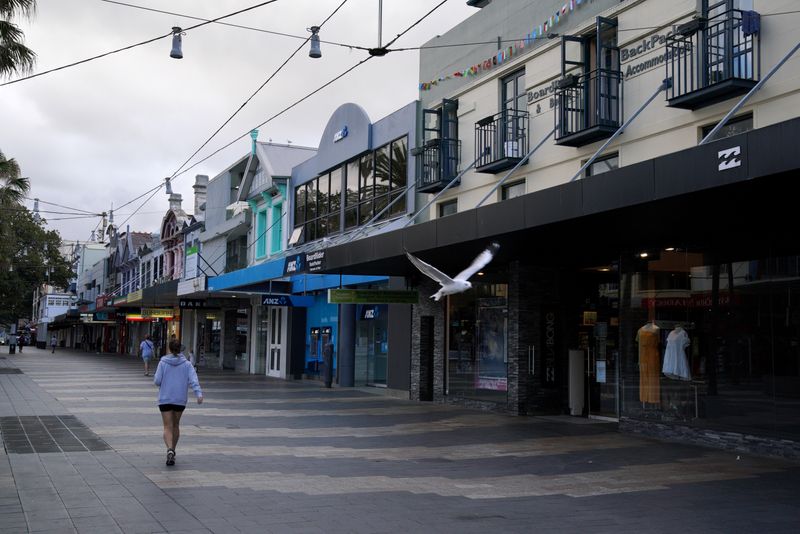By Swati Pandey
SYDNEY (Reuters) - A measure of Australian consumer sentiment collapsed in April to a 30-year low as social distancing restrictions due to the coronavirus pandemic threatened to push the country's economy into its first recession in three decades.
Wednesday's survey showed the Melbourne Institute and Westpac Bank (AX:WBC) index of consumer sentiment plunged 17.7%, its biggest monthly decline since records began 47 years ago.
The index is now at 75.6, the lowest since 1991 during Australia's last recession.
The survey comes as the coronavirus outbreak has spread in Australia from less than 100 cases last month to around 6,500 now, killing 62.
The details of the survey reflected large shocks to jobs and spending.
Listed companies in Australia and New Zealand have already laid off or began considering laying off at least 121,520 people, temporarily or permanently.
A separate survey of businesses on Tuesday showed conditions and confidence plummeted in March.
To support the economy, Australia's government has announced a A$320 billion ($205.3 billion) package, including a job-keeper allowance to help businesses keep staff.
Still analysts are predicting the unemployment rate to shoot above 10%.
Wednesday's survey showed all five sub-indexes fell in April. The biggest declines were in the near-term outlook for the economy and in attitudes towards spending.
Separately, a Commonwealth Bank (AX:CBA) analysis also out on Wednesday showed total credit and debit card expenditure in the week to April 10 dropped 20% from a year ago. Spending on services plummeted 44%.
Other bleak economic data on Wednesday showed a 90% drop in tourist arrivals from China in February from a year ago. Arrivals from Hong Kong, Singapore and Germany also slumped, according to the Australian Bureau of Statistics (ABS).
Despite the gloomy reading, Westpac Chief Economist Bill Evans expects that economic growth will resume by the fourth quarter of 2020 after three quarters of contraction.
"Australia's pandemic experience to date has been much less debilitating than that of the hardest hit areas abroad," Evans noted.
"The number of cases is high but has not overwhelmed Australia’s health system, with recent evidence showing a clear slowing in new cases that indicates policy measures are working to contain the spread," he added.
Supporting that view, the International Monetary Fund (IMF) noted Australia's fiscal response was "swift and sizable".
The IMF predicted a 6.7% economic contraction this year, the deepest recession in Australia's history, followed by a 6.1% expansion in 2021. Unemployment is expected to average 7.6% in 2020 and 8.9% in 2021.

($1 = 1.5584 Australian dollars)